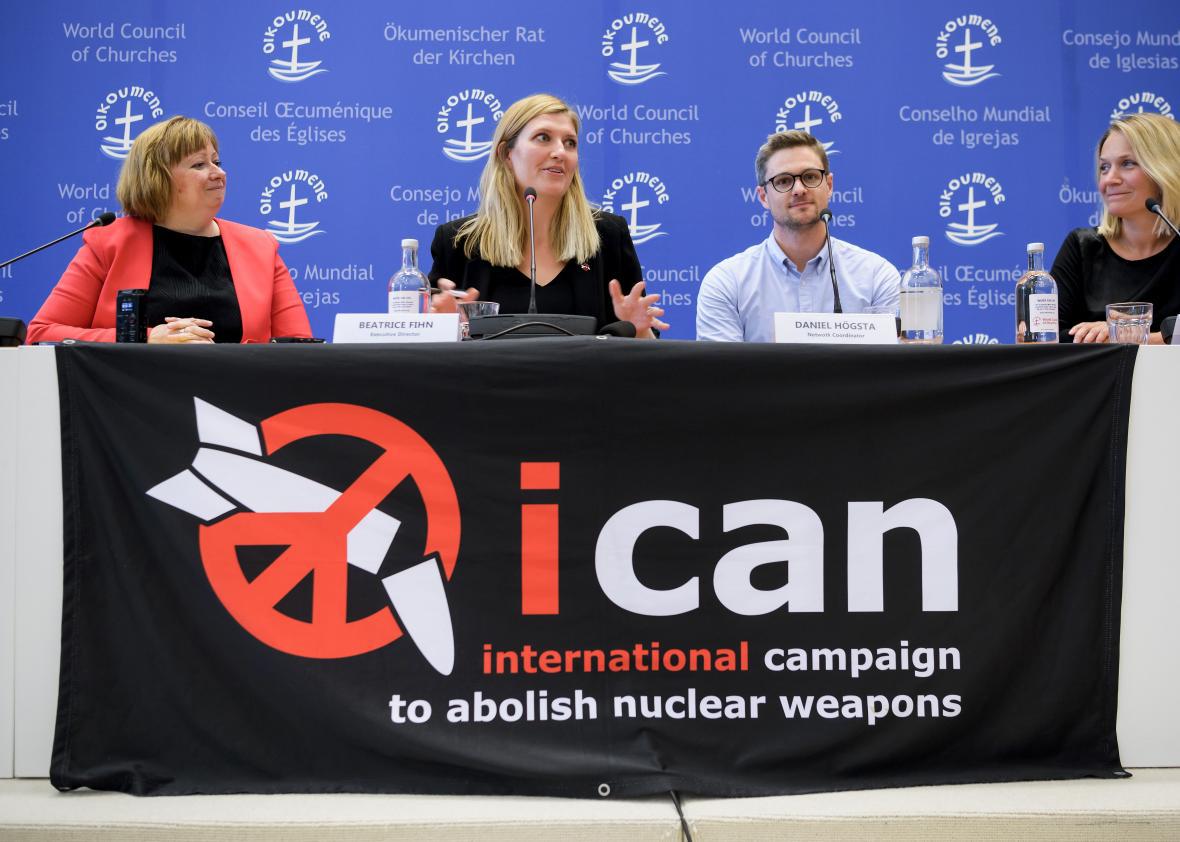There are two ways to look at the Nobel Committee’s decision to award the 2017 Peace Prize to the International Campaign to Abolish Nuclear Weapons, the main nongovernmental organization advocating for the international treaty banning nuclear weapons, which was adopted at the United Nations in July.
The first is that it’s a safe choice. If the committee had done what many expected and awarded the prize to the architects of the 2015 Iran nuclear deal—Iranian Foreign Minister Javad Zarif, EU High Representative Federica Mogherini, and especially former Secretary of State John Kerry—it would have thrown a political bombshell at Washington, with unpredictable consequences, during a week when the future of the deal is very much in doubt. If the committee wanted to emphasize that, as their statement put it, “nuclear weapons pose a constant threat to humanity and all life on earth”—a threat very much highlighted by recent events in North Korea—this is a subtler way of doing it: Ten-year-old Geneva-based ICAN joins a long line of nonproliferation groups to receive the prize, including the Organization for the Prohibition of Chemical Weapons in 2013, the International Atomic Energy Agency in 2005, the International Campaign to Ban Landmines in 1997, the Pugwash Conferences in 1995, and International Physicians for the Prevention of Nuclear War in 1985.
On the other hand, the prize is also an acknowledgment of an audacious and near utopian effort. The treaty ICAN pushed for comprehensively prohibits the development, testing, manufacture, or possession of nuclear weapons. It was signed by dozens of countries in New York in September and will enter into force after it is ratified by 50 U.N. member states. So far three have done so (Guyana, Holy See, and Thailand).
If you happen to have missed the news that nuclear weapons are now (or will soon be) illegal, that’s because the treaty is basically symbolic. None of the nine countries that currently have nuclear weapons supported it and none have plans to give up their nukes, no matter how many countries ratify. France, Britain, and the United States released a joint statement in July, saying, “We do not intend to sign, ratify or ever become party to it. Therefore, there will be no change in the legal obligations on our countries with respect to nuclear weapons.”
We’re obviously a long way off from the treaty becoming reality. Barack Obama’s 2009 speech in Prague calling for a “world without nuclear weapons” feels like it was much longer than eight years ago. Right now, we live in a world where a despotic and unpredictable North Korean regime is in possession of nuclear weapons and intercontinental ballistic missiles, and is unlikely to ever give them up. Meanwhile, the president of the United States is threatening to “totally destroy” that country and seems hellbent on imperiling the Iran deal for no other reason than to score political points. ICAN might be a fantasy, but there are worse ways that the committee could use its spotlight than to highlight the grotesque absurdity of those weapons.
